Peter Beinart, one of the most influential Liberal Zionist advocates for partitioning our country into two separate states, has officially declared his rejection of the two-state paradigm.
Beinart has been slowly moving leftward for years, especially since he began seeing firsthand the realities faced by Palestinians living under Israeli military rule.
But unlike many of the prominent former two-staters who’ve already rejected partition in favor of a single democratic state (Professor Ian Lustick and Gershon Baskin being two fairly recent examples), Peter Beinart’s sudden support for a single state is significant as it will likely bring a critical mass of young Liberal Zionists with him.
This next generation had already been losing faith in the outdated two-state paradigm, having struggled to defend it left and right by regurgitating soundbites that don’t actually make sense when followed to their logical conclusions. Until this week, Beinart was likely the most important voice preventing much of the J Street U student movement’s rank and file from abandoning the dream of partition. Peter Beinart moving to their left and embracing a democratic one-state vision, regardless of how poorly formulated (it’s his first draft), could easily lead to a mass walkout of young Jews from the Liberal Zionist camp.
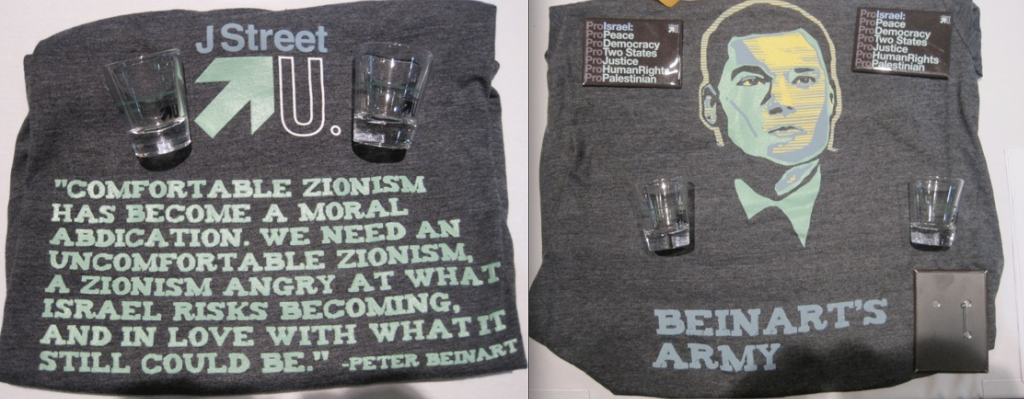
The two-state paradigm has been rapidly losing ground in recent years, as Israeli efforts to resist partition through populating the West Bank with hundreds of thousands of Jews appear to have created sufficient conditions to protect Israel’s disputed heartland.
Despite still being a centerpiece of United States foreign policy in the Semitic region, the two-state paradigm lost much popularity as a result of the Trump administration’s “Deal of the Century” presenting a hard to decipher caricature of the traditional US policy.
The Trump plan, with its allowance for Israeli sovereignty over roughly 30% of the West Bank while seeking to establish a non-contiguous and demilitarized Palestinian state in the remaining 70, exposed how undesirable any attainable version of partition would be and rightfully made people feel ridiculous when continuing to champion a two-state program.
Compounding this is the fact that after decades of failure to achieve their desired results, European governments have finally started cutting back on their financial support for local “peace industry” organizations.
By greatly reducing their funding, which had for years created economic incentives for many NGOs to blindly promote dividing the land, European states unwittingly allowed space for many activists on the ground to break free from the two-state paradigm.
Another significant factor in Liberal Zionists moving left is the fact that the pro-Israel narratives prominent in the West aren’t deep or compelling enough to compete with the Palestinian narrative – which is actually more true than not only the Liberal Zionist narrative but also that of the hasbara industry Peter Beinart has often combatted on his right.
Once a Jew lacking identification with the deeper story of his people confronts the fact that the Palestinian experience is actually true, ahistorical arguments about the Jewish need for a European-style ethno-state lose strength. The danger of pro-Israel organizations, from J Street to AIPAC, only providing a shallow Zionist narrative in place of the actual story that has driven our people for thousands of years is that once young Jews honestly engage the Palestinian narrative, they can easily adopt it in place of the paltry version of their own story they were given (Beinart might actually be case in point).
Peter Beinart’s political journey has to a certain extent introduced the Palestinian narrative into the mainstream Jewish community discourse, which can be valuable so long as it’s accompanied by the necessary deepening of Jewish national consciousness that would ultimately allow for the transcending of both narratives in favor of a more inclusive story that allows for Jews and Palestinians to actually become co-protagonists.
What’s certain is that Beinart is finally joining the real conversation about our country’s future. The two-state paradigm is dying and we won’t divide this land. The fact that Beinart’s binational proposal infers that he still believes in his “Zionist Trilemma” – that Israel can only choose two out of three when it comes to Eretz Yisrael, democracy and a Jewish state – shows he still needs to stretch his political imagination further.
Like most Liberal Zionists, Beinart once assumed the Land of Israel to be the value in need of sacrifice for the sake of a democratic Jewish state. But now that he has internalized the fact that Jewish resistance to partition has created a reality in which the country can no longer be divided in the way colonial powers once drew arbitrary lines on regional maps, he’s entering the more relevant discussion about what kind of society we can create in a single geographic unit.
The assumption that our state be organized along the basis of a liberal Western model shows a lack of creative thinking for how a single state between the river and the sea can satisfy core Jewish and Palestinian aspirations. While some might critique Peter Beinart’s first draft for one state as driven by the same Liberal Zionist desire for Israel to be an outpost of Western civilization in the Middle East, it should really come as no surprise that his maiden voyage into the one-state conversation include many of the values and basic assumptions common in two-state circles.
The conversations necessary for moving towards a Jewish democratic state in the entire Land of Israel require that we reevaluate what terms like “democracy” and “Jewish state” actually mean. Is democracy a synonym for westernization or a system that empowers people to influence the structures and laws they live under? Does a democratic system require voting for representatives once every few years or can we adopt a more direct participatory model?
Does Jewish state mean a Western nation-state with Jewish decorations that privileges Jews over gentiles? Or could it be a state that softly expresses Jewish identity and values in its policies and institutions?
Can a single state be experienced as fully democratic and inclusive by Palestinians while feeling deeply Jewish to Jews consciously living their people’s story?
We should, in all sincerity, welcome Peter Beinart’s arrival to the one-state camp and hope that he’ll keep an open mind as he continues to struggle with new ideas, further develop his political thinking and engage more diverse voices on the ground.
If he proves able to engage Israel’s deeper story and transcend the confines of Western nation-state models, Beinart will likely soon discover that it’s necessary to rethink old assumptions and create unique structures that reflect and express the values, cultures and identities of this land. While deconstructing Israel’s colonial features – many leftover from the British period – might seem daunting at first, it’s important to appreciate that we’ve been given an incredible historic opportunity to participate in this chapter of Israel’s rebirth by creating here a new model that can actually shine as an example to the world.

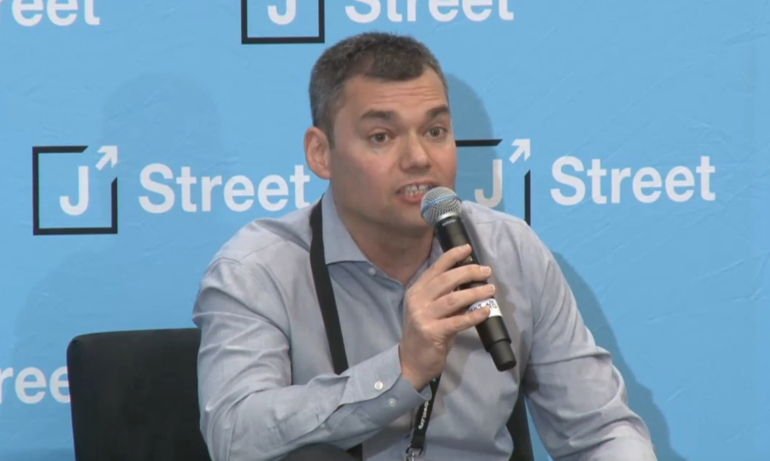
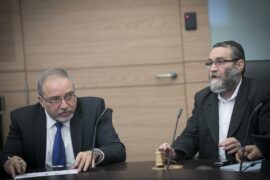
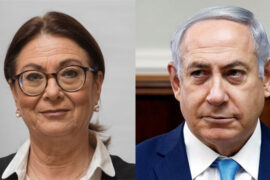
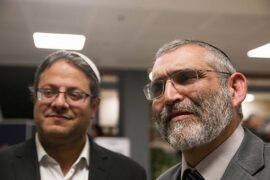

Democracy, really, is the great big elephant in the room. Just give a solid enough deconstructive critique of how Westerners idolise, obsess over and cannot think outside of democracy. Everything else would follow naturally from there. It’s precisely Democracy with a capital D, big Democracy, preventing the ability of people to self-rule.
oh i don’t; know whether to laugh or cry. both perhaps. beinart doesn’t tell the whole or even half of the story: literally, since over half the jewish pop of Israel are Jews from arab lands, Jew who were eliminated from arab lands. jews who spoke arabic, ate arabic, culturally arabic…hmmm the omission is nothing short of lying. ugh